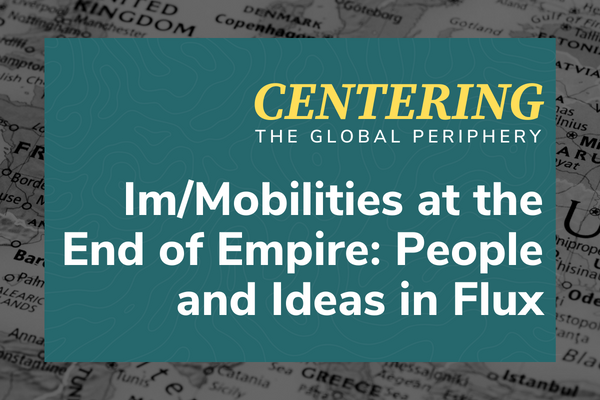
(This is a Mershon Center event.)
Organizers: Yiğit Akın and Theodora Dragostinova
This workshop brings together scholars working on imperial and post-imperial transitions in the Ottoman Empire and its successor states in the Balkans and the Middle East from the nineteenth century through the 1920s. We put into conversation new research-in-progress based on original indigenous sources that engages with various geographical fields and methodological approaches. We propose the intertwined notions of “mobility” and “immobility” to emphasize the fluidity of the transitions while exploring multiple aspects of their manifestations. In the period under consideration, ideas of statehood, sovereignty, and citizenship fluctuated as state-building, violence, and war reshaped territories, environments, and communities. We recognize that different chronologies in various geographical and political contexts make a unitary narrative impossible. Yet, overlapping regimes of mobilities and immobilities—military, demographic, political, intellectual, cultural, environmental—reshaped empires, states, societies, families, and individuals. To think about an overarching framework, we choose to focus on two angles: people and ideas. We also incorporate a vigorous discussion of research and writing methodologies: comparative, transnational, or global; case-study or big picture narratives; intellectual, biographical, or micro-historical perspectives; or anthropological and literary approaches. Our overall goal is a comparative discussion on historiographies, sources, and methodologies related to the (post-)Ottoman transitions.
This workshop is based on pre-circulated papers. Please contact akin.16@osu.edu and dragostinova.1@osu.edu with any questions.
Conceptual partners:
Peter Holquist, University of Pennsylvania
Laura Robson, Penn State University
Paper presenters:
Yiğit Akın, Ohio State University
Mustafa Aksakal, Georgetown University
Evguenia Davidova, Portland State University
Theodora Dragostinova, Ohio State University
Lerna Ekmekçioğlu, MIT
Miloš Jovanović, UCLA
Milena B. Methodieva, University of Toronto
Ayşe Parla, Boston University
Ipek Yosmaoğlu, Northwestern
